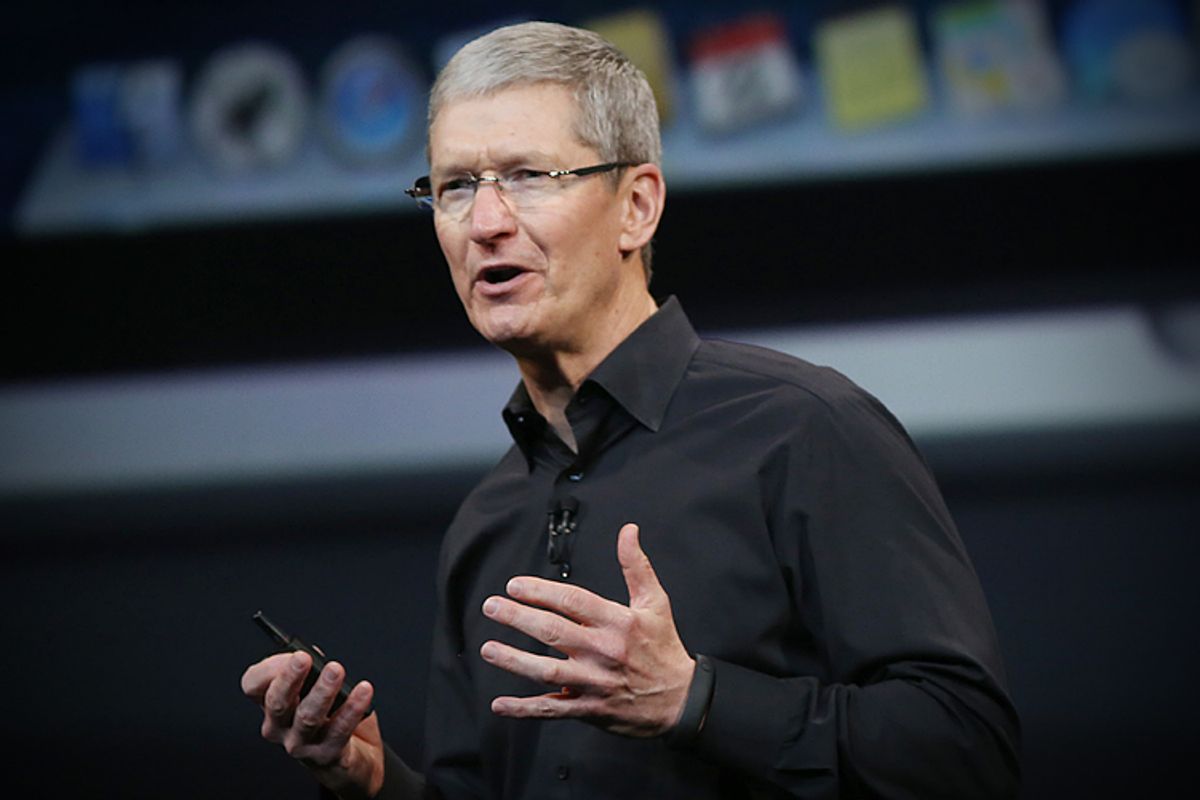In 2007, when Apple unveiled the iPhone, this recent college graduate was thrilled: The future had arrived and I was going to be a part of it. Unfortunately, once I saw the price, $702, the thrill of the future turned to the agony of my economic reality. While more affordable smartphones are available today, a costly new trial between Apple and Samsung may lead to an equally financially burdensome situation for many consumers stuck in the middle.
Locked into my current cellphone plan after graduating, the iPhone was not a realistic option. It was not until many years later with the rise of the Android operating system and phones produced by companies like Samsung and HTC – available to a more diverse consumer base at stores like 7/11 and CVS without a contract – that I was able to truly enjoy the mobile Web.
My experience is actually a microcosm of a decade-long movement of underrepresented populations -- oftentimes incapable of paying top dollar for a long-term contract -- finally gaining access to the mobile Internet. The competition among smartphone companies and wireless carriers has fostered greater innovation and a rise in the number of affordable smartphones with Internet access.
In fact, African-American and Hispanic smartphone ownership has actually grown to exceed the national average. This same group accesses the Internet on a cellphone, tablets or other mobile hand-held devices at demonstrably higher rates than all other groups.
Part of this growth can be attributed to the creation of a market of affordable Android smartphones, which have helped underrepresented groups gain access to the Internet. Today, there are twice as many Android users making under $30,000 a year than iPhone users. On the other side of that spectrum, iPhone users outnumber Android users 40 percent to 31 percent with users making over $75,000.
Unfortunately, this competition has also spurred an epic legal rivalry between Apple and Samsung. Apple has already won a nearly $1 billion jury verdict in a patent case against Samsung. Apple then lost an attempt to get a court-ordered ban on the sale of nearly two dozen older Samsung smartphones and tablets on the U.S. market. The second patent trial between the two companies that began two weeks ago involves the newer lines of Samsung’s signature smartphones and tablets.
Apple has every right to defend its intellectual property, but at a certain point, its dependency on litigation and bizarre demands, evident in the new trial on the heels of a former that it won (and that Samsung is appealing), is unreasonable. And thus far, court proceedings show that aggressive marketing and more affordable product lines – not the patents in dispute – helped drive Samsung’s market gain.
Beyond the legal talk, the real loser in all of this is the consumer who benefits from quality affordable smartphones that utilize Android operating systems – like me. If Apple succeeds in banning the sale of some smartphones or increasing the costs of others, underrepresented populations will lose access to quality affordable smartphones with mobile Internet access.
Let us be clear here: Apple executives have said they were not interested in selling low-cost phones, nor were they interested in entering the low-cost smartphone market. The average Android phone costs half of the average iPhone. Moreover, Apple’s attempt to obtain $40 per device for certain Samsung phones would unnecessarily drive up costs in the mobile marketplace when that fee makes its way to consumers.
Even today, this not so recent college graduate finds the cost of an iPhone or an iPad to be prohibitive. It is to the benefit of everyone that there are affordable, high-quality alternatives to Apple products. Their existence in the marketplace, similar to prepaid phones, Internet literacy programs and the release of more wireless spectrum is essential to bringing the Internet to people of all colors and bridging the digital divide. Apple’s attempt to stifle competition would wreck – not contribute to – the dynamism of the mobile marketplace by increasing consumer costs and slowing innovation.
Ultimately, increased costs will disproportionately affect those Americans who use their mobile devices for affordable Internet access by making it harder for them to acquire the technology they rely on. The unending legal wrangling between Apple and Samsung is an unnecessary distraction. It is time both companies resolved their legal quarrels and got back to their core mission of creating innovative products.
Kristian Ramos is a political strategist living in Washington, D.C., who proudly hails from the Southwest. He has worked in the U.S. Senate, House of Representatives, the think tank NDN, and the League of United Latin American Citizens. He has a master's degree in governmental affairs from Johns Hopkins University.

Shares